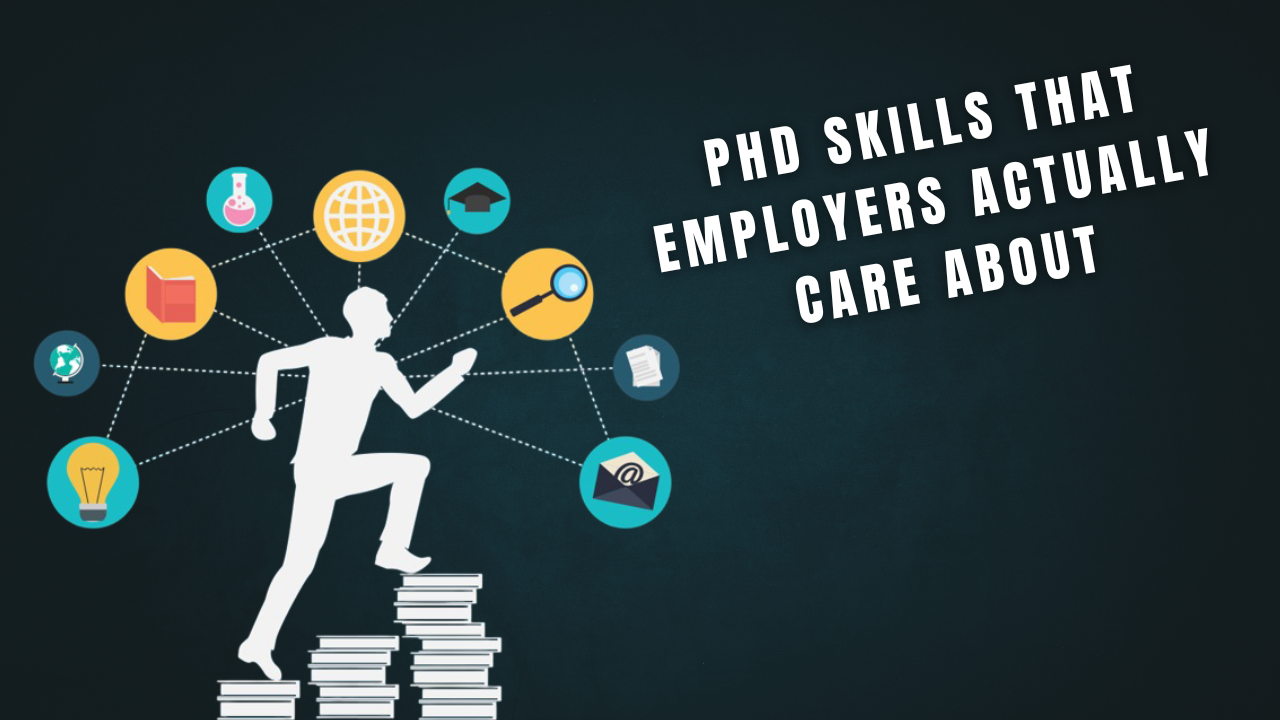PhD Skills That Employers Actually Care About
Kenfra Research - Shallo2025-06-05T17:03:44+05:30When you’ve dedicated years to pursuing a PhD, it’s only natural to wonder how that experience will translate into the job market. While advanced research, academic publications, and in-depth subject expertise are impressive, employers are increasingly focused on PhD Skills That Employers truly value—those transferable strengths that PhD graduates bring to the workplace. So, what exactly are the PhD Skills That Employers are actively seeking? And how can you showcase them to land a rewarding career outside academia—or even within it? Let’s explore the most sought-after skills developed during a PhD journey that can make you stand out in any competitive job market.

1. Advanced Problem-Solving Abilities
At the heart of every PhD is a complex problem that needs solving. Whether you’re developing algorithms, analyzing social behavior, or synthesizing chemicals, you’re constantly identifying challenges, investigating potential solutions, and iterating your process until you succeed.
Why Employers Care:
Problem-solving is essential in every industry—from tech and finance to healthcare and consulting. Companies want individuals who can break down large issues, think critically, and deliver results.
How to Highlight It:
- Use specific examples where your research led to breakthroughs.
- Showcase instances where you worked through ambiguity to deliver solutions.
- Quantify outcomes (e.g., “developed a model that improved data accuracy by 30%”).
2. Project Management Mastery
Managing a PhD is like managing a long-term, high-stakes project. You plan timelines, set milestones, balance budgets (even if it’s a small grant), and coordinate with supervisors, collaborators, and committees.
Why Employers Care:
Project management is crucial in fast-paced business environments. Your ability to independently manage a multi-year research project demonstrates initiative, time management, and strategic planning.
How to Highlight It:
- Mention tools you used (Gantt charts, Trello, Notion, etc.).
- Emphasize leadership in planning, monitoring, and delivering your dissertation on time.
- If you managed sub-projects or supervised interns, talk about it.
3. Data Analysis and Interpretation
Whether your PhD was in social sciences, life sciences, or engineering, chances are you’ve worked with data. From running statistical models to interpreting experimental results, you’ve developed deep analytical skills.
Why Employers Care:
We live in a data-driven world. Employers need people who can not only analyze data but also draw actionable insights and communicate them clearly to stakeholders.
How to Highlight It:
- List software/tools (e.g., Python, R, SPSS, MATLAB, Excel).
- Explain how your insights influenced decisions or advanced understanding.
- Create a portfolio or GitHub repository to demonstrate your work (for technical roles).
4. Communication Skills (Written and Verbal)
From writing a thesis to presenting at conferences, PhD students hone the ability to explain complex ideas in understandable terms. You’re trained to tailor your message depending on your audience—whether it’s academic peers, students, or industry professionals.
Why Employers Care:
Communication is at the core of collaboration, marketing, training, customer service, and leadership. The ability to explain, persuade, and simplify ideas is incredibly valuable.
How to Highlight It:
- Mention public speaking experience, publications, or blog posts.
- Include your ability to write technical reports, grant applications, or instructional content.
- Share LinkedIn articles or recorded presentations if available.
5. Adaptability and Resilience
Let’s face it—PhDs are not easy. You face rejections, failed experiments, mental fatigue, and long periods of uncertainty. And yet, you keep going.
Why Employers Care:
In the workplace, challenges come often and unpredictably. Employers value individuals who can adapt quickly, bounce back from setbacks, and remain solution-oriented.
How to Highlight It:
- Share a personal story of overcoming a major research obstacle.
- Discuss how you responded to changes in project direction, funding issues, or data loss.
- Frame your resilience as a leadership and growth skill.
6. Collaboration and Teamwork
Despite the stereotype of the “lone researcher,” most PhD work is deeply collaborative. You may work with lab teams, co-author papers, teach students, or work across departments and even countries.
Why Employers Care:
Teamwork is fundamental in every workplace. Even in remote or technical roles, collaboration with cross-functional teams is the norm.
How to Highlight It:
- Mention any interdisciplinary research or international collaboration.
- Highlight roles in organizing academic events, workshops, or team-based research.
- Show evidence of mentoring, peer reviewing, or team achievements.
7. Technical and Digital Skills
From statistical software and programming languages to lab technologies and digital collaboration tools, PhD students often acquire a wide range of technical competencies.
Why Employers Care:
Digital transformation affects every industry. Being tech-savvy makes you a more versatile and valuable employee.
How to Highlight It:
- List relevant tools on your resume (e.g., LaTeX, NVivo, Tableau, SQL).
- Explain how you applied these tools to solve real research problems.
- Include links to code, dashboards, or digital content you’ve created.
8. Independent Thinking and Self-Motivation
A PhD requires you to set your own goals, manage your own time, and motivate yourself without constant supervision. You develop an entrepreneurial mindset by default.
Why Employers Care:
Companies appreciate self-starters—people who take initiative, drive their own learning, and propose new ideas. These are the traits of future leaders and innovators.
How to Highlight It:
- Talk about how you designed your research or initiated a collaboration.
- Emphasize your ability to work autonomously and take ownership of projects.
- Mention awards or recognitions that validate your independent work.
9. Ethical Awareness and Research Integrity
Ethical conduct and attention to detail are core components of research. From citations and authorship to data collection and participant privacy, PhD students are trained in ethical standards.
Why Employers Care:
In regulated industries (e.g., healthcare, pharmaceuticals, finance), ethical compliance is non-negotiable. Your strong foundation in research ethics builds employer trust.
How to Highlight It:
- Mention training in research ethics, IRB approvals, or compliance certifications.
- Highlight your ability to handle sensitive information with integrity.
- Talk about how you maintained transparency and accuracy in your work.
10. Leadership and Mentoring
Many PhD students take on leadership roles—mentoring juniors, leading lab groups, or organizing academic events. These experiences build leadership and people-management skills.
Why Employers Care:
Leadership potential is a major asset. Companies seek individuals who can lead teams, manage conflict, and foster collaboration.
How to Highlight It:
- Mention any teaching, mentoring, or supervisory experience.
- Highlight organizational responsibilities like planning a seminar or conference.
- Describe your leadership style and the impact you had on others’ development.
Final Thoughts: From Academic Rigor to Professional Relevance
The skills you gained during your PhD are far more marketable than many realize. Beyond your subject expertise, you bring a powerful combination of critical thinking, communication, resilience, and innovation—all PhD Skills That Employers are actively seeking. Whether you’re transitioning to industry, policy, entrepreneurship, or staying in academia, clearly demonstrating the PhD Skills That Employers care about is the key to unlocking valuable career opportunities.
Kenfra Research understands the challenges faced by PhD scholars and offers tailored solutions to support your academic goals. From topic selection to advanced plagiarism checking.







Leave a Reply